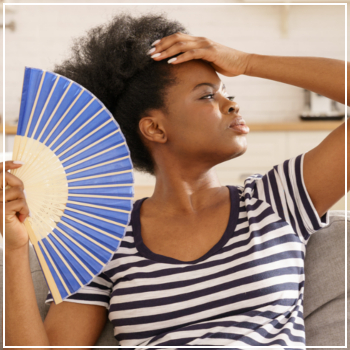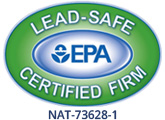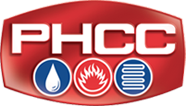Can Outside Temperatures Affect Your A/C Unit?
 When it’s hot outside, you turn on the air conditioning and expect it to cool your home in a reasonable amount of time. Yet on days when the temperature pushes 100 degrees Fahrenheit, your system may seem sluggish, taking longer to cool your space or delivering lukewarm air.
When it’s hot outside, you turn on the air conditioning and expect it to cool your home in a reasonable amount of time. Yet on days when the temperature pushes 100 degrees Fahrenheit, your system may seem sluggish, taking longer to cool your space or delivering lukewarm air.
The fact is, outside temperatures can impact your home’s AC unit. Here’s what you should know in case you start to notice this pattern.
What Occurs
Air conditioners create cool air through a substance called refrigerant. By design, the unit takes warm air from inside your home, circulates it to cool the air via the refrigerant and releases the heat and humidity outside.
This process should occur without issue in temperatures between 70 and 90 degrees. You’ll start to notice a difference when temperatures become more extreme, exceeding 100 degrees. When this occurs, your air conditioner requires more energy to perform its process and has to work harder to cool your home.
Once in a while, your unit can handle this stress. Yet if the occurrence becomes regular, the strain placed on the unit decreases its lifespan or results in greater wear on key parts, requiring more maintenance. In the process, your unit consumes just as much or more energy but does not provide the results you want.
What’s the reasoning behind this change?
- Your air conditioner’s operation shifts when temperatures rise above average. Ordinarily, it defaults to the heat exchanger to move heat and humidity from inside your home to outside. In hotter conditions, the system switches to the compressor to better cool the air. When this occurs, the air in your home does not feel fully cool.
- Air conditioning units are designed to keep a home’s interior temperature 30 degrees cooler than the outside. Because the unit has to work harder when the exterior temperature exceeds 100 degrees, you may not feel this difference. Instead, your home’s interior temperature might measure between 75 and 80 degrees.
- Extreme temperatures may also be accompanied by hail, lightning or a hurricane, all of which can damage a unit’s exterior components, resulting in reduced operation or failure. As such, if the forecast predicts extreme weather, take measures to protect your A/C.
What Can Happen As a Result
When your air conditioner is overworked, there can be a number of consequences to your home and the surrounding community:
- You receive significantly higher utility bills. During a heat wave, your electricity bill may jump as much as 50 percent.
- Your air conditioner’s filters are more likely to accumulate debris and experience clogs, which cause the unit to work even harder and increase its chances of a breakdown.
- As units across neighborhoods exert more power and consume more energy, the local electrical grid shoulders a larger load. This shift increases the chance of a neighborhood power outage.
What You Can Do
When a heat wave is approaching, the last thing you want to do is turn off the air conditioning. Instead:
- Avoid shutting the unit on and off. When you’ll be away from home, set the home’s internal temperature above 80 degrees and lower it when you return home. This prevents the unit from having to work harder to cool your home once you switch it back on.
- Make sure your air conditioner is properly sized for your home. A unit that’s too small will operate at its highest capacity and likely break down sooner.
- Assess your air conditioner’s efficiency. Models produced over a decade ago tend to be less efficient and more prone to malfunctioning than units manufactured more recently.
- Clean the air filter more frequently to avoid placing extra strain on your unit, a minimum of once per month. In addition to the filter, brush off any debris accumulating on the fan.
If your air conditioning units no longer seems to cool your home efficiently or it recently malfunctioned, schedule service with MJ Fahy & Sons. To learn more, contact us today.




